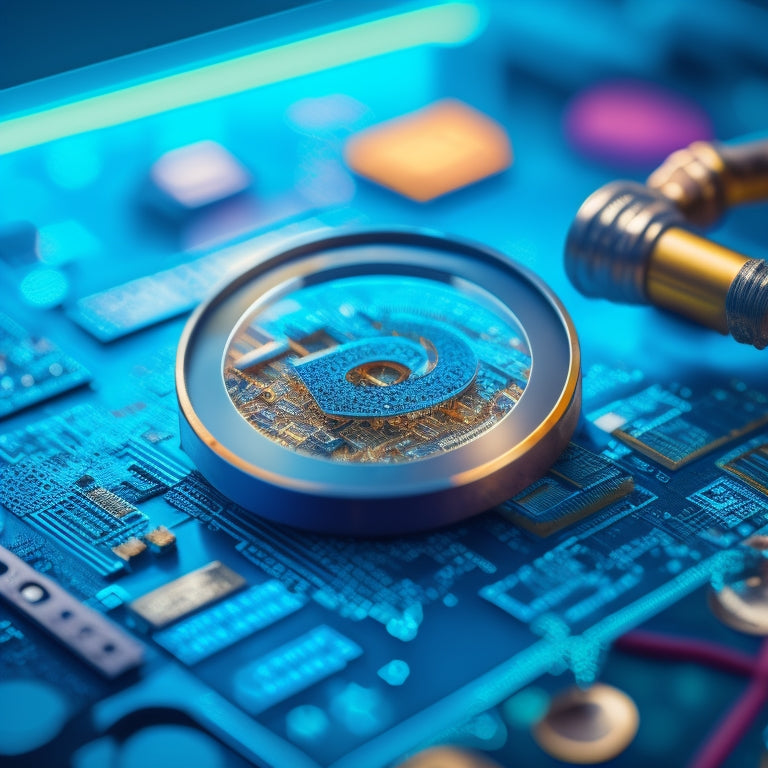
Unveiling the Truth Behind Windows License Validity
Share
You may think you have a legitimate Windows license just because you have a product key, sticker, or DVD, but that's not entirely accurate. These items are simply representations of your legal agreement with Microsoft. In reality, using an evaluation edition for production or purchasing from unreliable sellers can result in invalid licenses, which have legal repercussions. Activating your Windows installation ties it to a legitimate license, guaranteeing security and preventing piracy. But there's more to understanding Windows license validity than meets the eye - and understanding these nuances is crucial to avoid costly mistakes and ensure you're on the right side of the law.
Key Takeaways
• A Windows license is a legal agreement, not a product key, sticker, DVD, or activation, and unauthorized usage has legal consequences.
• Using an evaluation edition for production or buying from unreliable sellers can lead to invalid licenses and legal issues.
• Microsoft combats software piracy by verifying product keys through activation servers to prevent reuse and detect misuse.
• Acquiring licenses through valid means is crucial, as OEM, retail, and upgrade licenses have different costs and terms.
• Microsoft's lenient stance on reactivations focuses on guaranteeing legitimate Windows copies, targeting large-scale pirates rather than individual users.
Understanding Windows Licenses
When you buy a Windows operating system, you're actually purchasing a license to use the software, which is a legal grant from Microsoft that allows you to install and run Windows on your computer.
This license acquisition process is often misunderstood, leading to common misconceptions about what constitutes a valid license. The product key, Windows sticker, DVD, or activation status aren't licenses themselves, but rather indicators of a legitimate license.
Unauthorized usage, such as installing Windows on multiple PCs with a single license, can have serious legal implications. Understanding that a Windows license is a legal agreement between you and Microsoft, and violating its terms can result in legal consequences.
License Validity Pitfalls
You may unknowingly fall into common license validity pitfalls, even with a legitimate Windows license, due to misunderstandings about what constitutes a valid license.
One common misconception is that a product key or Windows sticker is equivalent to a license, which isn't the case.
Another pitfall is using an evaluation edition for production purposes, violating licensing terms.
Additionally, buying licenses from unreliable sellers can lead to invalid licenses.
To avoid these pitfalls, it's vital to understand the valid ways to acquire a license and maintain proper documentation.
License enforcement is paramount to prevent misuse, and Microsoft takes measures to combat software piracy.
Be aware of these common misconceptions to guarantee your Windows license remains valid.
Windows Product Activation
Microsoft's product activation process serves as a safeguard against software piracy, guaranteeing that each Windows installation is tied to a legitimate license. As you install Windows, you're required to enter a unique product key, which is verified by Microsoft's activation servers. This process helps combat software piracy by preventing the reuse of product keys.
If you try to reuse a product key, you'll trigger product key alerts, indicating misuse. Activation servers track legitimate software usage, allowing Microsoft to monitor and prevent illegal installations. By tying your Windows installation to a legitimate license, you ensure you're using genuine software, free from potential security risks and performance issues.
The Cost of Legitimacy
Generally, purchasing a legitimate Windows license can add a significant amount to the overall cost of a PC or upgrade. You'll need to weigh the cost comparison between OEM, retail, and upgrade licenses. OEM licenses are often included in the PC price, while retail licenses cost around $99 for Home and $149 for Pro.
Upgrade licenses add $50-100 to your existing Windows installation. When making a cost comparison, remember that legitimate licenses aren't sold for suspiciously low prices like $29-69. Be wary of such deals, as they may compromise license authenticity.
Ensuring your Windows license is authentic is essential, as it guarantees you'll receive security updates and support from Microsoft.
Microsoft's Lenient Stance
Activation servers, designed to combat software piracy, surprisingly show leniency towards reactivations, allowing users to breathe a sigh of relief. You may wonder why Microsoft's approach is so forgiving. The answer lies in their license enforcement strategy.
Microsoft's primary goal is to guarantee that users have a legitimate copy of Windows, rather than scrutinizing every minor license irregularity. As a result, you're unlikely to face issues with reactivations, unless you're a large enterprise with suspiciously high activation rates.
This lenient stance is a deliberate move by Microsoft to focus on bigger fish, such as large-scale software pirates, rather than bothering individual users or small businesses. So, you can focus on using your Windows installation without worrying about Microsoft's license enforcement teams breathing down your neck.
Frequently Asked Questions
Can I Transfer a Windows License From an Old PC to a New One?
You can transfer a Windows license from an old PC to a new one, but confirm compatibility with new hardware; OEM licenses are tied to the original device, while retail licenses are more transferable, following Microsoft's guidelines.
Are Student Discounts Available for Windows Licenses?
You can snag a discounted Windows license through academic programs, but be aware that eligibility requirements and license expiration dates apply; typically, students, teachers, and educational institutions qualify, with licenses usually valid for a specific term or academic year.
Can I Use a Windows License on a Virtual Machine?
You can install Windows on a virtual machine, but be aware that virtual machine restrictions apply, and you'll need to activate the license separately, following the standard license activation process, to guarantee legitimacy.
Can I Sell My Windows License When I Upgrade to a New Os?
When upgrading to a new OS, you can't directly sell your Windows license, as license resale is restricted. However, you can transfer it to a new device, ensuring you deactivate it on the old one, making the license transfer legal.
Do I Need a Separate License for Each User on a Shared Pc?
Imagine a family of four sharing a PC; you'll need a single Windows license, not separate ones for each user, as Microsoft's licensing terms don't require individual licenses for shared PC users, avoiding license sharing implications.
Related Posts
-

Simplify Meal Planning With These 5 Essential Apps
You're tired of last-minute takeout and wasted groceries, and you're not alone. Simplify meal planning with these 5 e...
